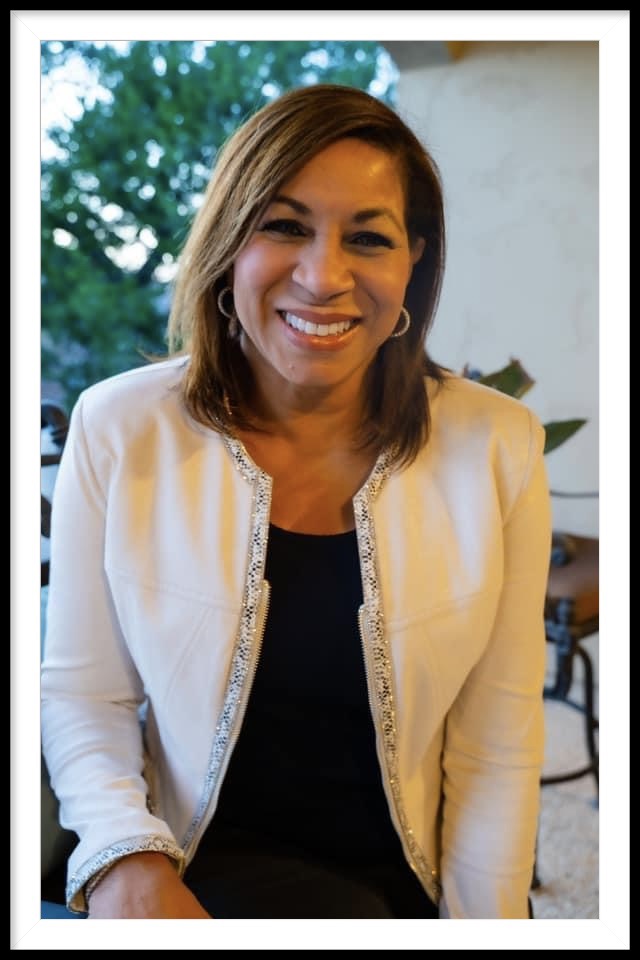“He doesn’t belong here!”
- Juli Henderson

- Jul 20, 2022
- 7 min read

I love the feeling of belonging — the rich feeling of being seen and accepted. I love being around my people, whether they are defined by age, diversity or shared interests. Most of us have certain groups of people that make us feel like we can truly be ourselves with them. But I will never forget the time a woman expressed to me that Robert didn’t belong in a place where she was privileged to be. It cut me.
I don’t have obvious disabilities to present to onlookers to judge. I walk with a typical gait for a woman of my height and weight, and I don’t need a wheelchair. My eyes work just fine (except for when I am trying to read the ever-decreasing font size on a product label), and they don’t roll rhythmically from side to side or up and down several times a day. My arm movements are not fast or seemingly uncontrollable, and I can use my hands to master most gross and fine motor skills.
You would not look at me and immediately think that I needed assistance or care. You would probably call me a “normal” woman who goes about living her life in and out of her home. You would probably not have any reasonable thought that I could not belong in a group of friends in my community.
However, if you had seen my precious Robert, you would have most likely formed immediate opinions about him. You would have seen his really cool, decked- out wheelchair and realized that he could not walk independent of assistance. You would not know, though, that for the first eight years of his life he walked without the daily need for a wheelchair. You might have seen him experience any one of his multiple types of seizures when his eyes did things that eyes just should not do and conclude that his eyes couldn’t look straight into yours and read you like a book! But, oh how he could do that.
You might have seen his arms making big, jerky movements when he was happy or seizing and not realize that he could shoot a basketball with skills beyond our understanding. And that this Robert — in our arms — could intentionally wrap his arms around you giving you the tightest bear hug or use his arms to navigate between three electronic devices without missing a beat. You wouldn’t know any of this upon first glance and, thus, you might have assumed that he didn’t and couldn’t possibly belong to any meaningful group of friends in our community. But, oh how wrong you would be.
Like many individuals with disabilities, Robert had a gift for weaving in and out of groups of people from his home to skilled doctors’ offices, caring dentists’ chairs, and devoted church groups. He had places where we knew he belonged. We obviously made those decisions for him due to his diminished capacity. Yet, I often wonder if Robert ever felt the rejection of others who didn’t know him or understand his limitations?
When he was in elementary school, did he realize the kids who laughed at him were really laughing at him and not with him as he moved down the hallways? Did he understand that certain individuals had privileged lives which did not include someone who didn’t act as they desired, whether they understood his difficulties or not? Did it hurt him when someone was mean to him or dismissive of his very existence?
What does it mean to “belong”? The day I was told Robert did not belong somewhere, I wondered if that was the sentiment of more than just one person. It made me examine his life and the places where he flourished. I found that there were indeed places where he was loved and welcome, and those were two of the factors that became my measurement for where I would allow him to belong.
He was too complex to attend one specialized grade school, so I knew he couldn’t fit in there. Our neighborhood public elementary school was perfect and the special education teachers and aides taught and cared for him so well. But as he transitioned into middle school, a controlled environment in our home where his teachers could instruct him appropriately was exactly the place where he fit. He was on palliative care for the last eight years of his life, and those educators knew how to help regulate his educational plan to accommodate his daily seizure and energy levels. It was a dance, but he belonged there.
I made the needed adjustments to places he would go through the years because, quite honestly, I didn’t want to respond to others in a rude manner or cause my heart any additional anxiety. I know many of you know what I mean — you stay away from places that would cause embarrassment or hurt to your family member or yourself because it isn’t worth the pain. Certain stores, parks, and even church gatherings are avoided just to keep peace in your established routine. I wish this wasn’t the case. Nonetheless, it is the truth of the matter.
So, how then shall we live? I believe we can be more inclusive as a community but also take some risks to venture out a bit more. I learned that there were places in our community that welcomed Robert with open arms. He had friends from church that played with him during church services so that Chris and I could attend a Sunday School class, sing in the choir or play in the orchestra. There were friends that invited us to bring Robert to their home for the holidays, and others who asked that we join them at their lake houses. He had Life Group members who watched him in our home so that Chris and I could interact with other adults.
And we always had family members who lovingly traveled with us to doctors’ appointments and fun adventures along the way. He belonged with these loving people, and he sensed their care for him. They made him feel like he belonged. I will never forget the joy he expressed with each new, accepting place.
I feel like I am reliving some of these interactions as I am writing this today. I guess we always revisit the beautiful moments as time goes by. We want to remember and rest emotionally in the places where our loved one is currently welcomed or where they were welcomed in the past.
My statement and challenge to you:
They do belong.
Make them feel welcomed.
Decide to do better in our communities.
We hold the ability to do so.
Listening Library: The Story I’ll Tell (feat. Naomi Raine, Maverick City Music, TRIBL)
“21 The eye cannot say to the hand, “I don’t need you!” And the head cannot say to the feet, “I don’t need you!” 22 On the contrary, those parts of the body that seem to be weaker are indispensable, 23 and the parts that we think are less honorable we treat with special honor. And the parts that are unpresentable are treated with special modesty,24 while our presentable parts need no special treatment. But God has put the body together, giving greater honor to the parts that lacked it,25 so that there should be no division in the body, but that its parts should have equal concern for each other. 26 If one part suffers, every part suffers with it; if one part is honored, every part rejoices with it.” (1 Corinthians 12:21-26 NIV)
The Story I’ll Tell
The hour is dark And it's hard to see What You are doin' here in the ruins And where this will lead Oh, but I know That down through the years I'll look on this moment and see Your hand on it And know You were here
And I'll testify of the battles You've won How You were my portion when there wasn't enough And I'll testify of the seas that we've crossed The waters You parted, the waves that I've walked
Singing, oh-oh-oh, my God did not fail (Yeah) Oh-oh-oh, it's the story I'll tell Singing, oh-oh-oh, I know it is well Oh-oh-oh, it's the story I'll tell
Believing gets hard When options are few When I can't see what You're doin', I know that You're proving You're the God who comes through Oh, but I know (Woo, yeah) That over the years I'll look back on this moment and see Your hand on it And know You were here
And I'll testify of the battles You've won, yeah-yeah How You were my portion when there wasn't enough, oh
I'll testify of the seas that we've crossed, yes, I will The waters You parted, the waves that I've walked (Woo)
Singing, oh-oh-oh, my God did not fail Singing, oh-oh-oh, that's the story I'll tell, oh Oh-oh-oh, I know it is well, yeah Oh-oh-oh, it's the story I'll tell (Yeah, yeah, yeah)
And all that is left is highest praises, yeah, yeah So sing hallelujah to the Rock of Ages Come on, sing it, all that's left All that is left is highest praises, so sing it, sing it So sing hallelujah to the Rock, to the Rock of Ages Oh, all that is left All that is left is highest praises, praises, sing (So sing hallelujah) To the Rock of Ages Sing it to the Rock, we'll sing it to the Rock, oh, that's right All that is left is highest praises, highest praises, sing it Sing hallelujah to the Rock, to the Rock of Ages
And I'll testify of the battles You've won (Yeah) How You were my portion (Yeah) when there wasn't enough, Provider And I'll sing the song of the seas That we crossed (yeah, yeah, yeah, yeah) The waters You parted, the waves that I've walked
Singing, oh-oh-oh, my God did not fail (yes, Lord) Never ever failed me Oh-oh-oh, it's the story I'll tell It's my testimony Oh-oh-oh, I know it is well Oh-oh-oh, that's the story I'll tell
It's the story I'll tell It's the story I'll tell
Songwriters: Howard Benjamin Cowart / Alton Eugene Buggs Ii / Naomi R Felder
The Story I'll Tell lyrics © Howiecowie Publishing, Curb Word Music, Maverick City Publishing, Heritage Worship Music Publishing, Naomi Raine Music









Comments